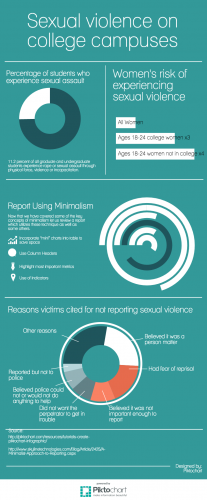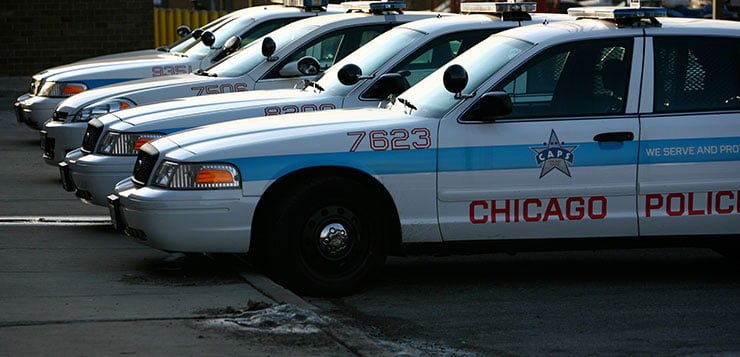Before entering their first college classes, fresh-faced freshmen are often told about the pervasiveness of sexual assault on campus, not just at DePaul but at universities around the nation. After orientation, some rarely hear about sexual assault again until April, sexual assault awareness month (SAAM).
At DePaul, the month coincides with a greater push for bystander intervention training through “Vinny Vow” workshops that are aimed at increasing not only awareness, but students’ ability to intervene.
Vinny Vow, which teaches potential bystanders safe and positive ways they can act to prevent or intervene when there is a risk for sexual and relationship violence, are often done by request. Student organizations and others can request for members of Health Promotion and Wellness (HPW) to come in and teach them the skills they may need to combat sexual violence.
“What’s great about bystander intervention is that it gives you the skills to intervene and that’s what’s unique about it,” Shannon Suffoletto, director of HPW, said. “A lot of times you’re going through education, which is great, but this workshop is giving you a skill, lets you practice that skill. That equips you differently to move into the world and do something about it.”
Nationally, sexual assault awareness month usually means introspection — campaigns pushing for awareness and broadcasting facts are often accompanied by efforts on college campuses to make students aware of how the issue could impact them.
DePaul’s bystander training is partially a response to data gathered from the Diverse Learning Environments survey, which looks at the university’s campus climate. For sexual assault, the results were in line with national averages — across the board, students don’t report assaults to the police or to campus police.
 Vinny Vow was created in part because of this. By teaching students how they can intervene, the hope is that they can help create a safer environment for all.
Vinny Vow was created in part because of this. By teaching students how they can intervene, the hope is that they can help create a safer environment for all.
Haley Majetich, a DePaul student who has participated in and facilitated Vinny Vow workshops, said that the experience helps students connect to others within the student body and build a sense of community.
“It’s not just us spitting facts or definitions at you, it’s a chance to really be hands on,” Majetich said. “You get to see how others view sexual assault and the barriers to intervening.”
The perception of sexual assault on college campuses has grown over the past six years and universities, including DePaul, now take part in studies of their campus climate to understand what’s going well and what’s still lacking. For SAAM, DePaul offers a variety of activities and conversations to engage students about issues related to sexual health and sexual violence.
In regards to sexual assault, many universities are creating programs and engaging with students through education and workshops to try to mitigate the problem.
DePaul’s diverse learning environment survey provided numbers that are helping departments like HPW approach education on sexual assault.
Around 7 to 8 percent of female students reported experiencing sexual assault during their time at DePaul — numbers that put them on par with other universities nationally. The data the university received did not specify the rate or non-binary or trans students who were sexually assaulted, but national data does indicate that non-binary and trans students are assaulted at higher rates.
A lower percentage of men, around 2 percent, also reported that they have been sexually assaulted. Around 60 percent of respondents reported that the assault happened while they were incapacitated due to drugs or alcohol.
For Karen Tamburro, DePaul’s Title IX coordinator, the importance of bystander intervention training is directly linked to those numbers and the fact that roughly three quarters of students will tell their friends about an assault rather than going to campus or city police.
“Statistics bear out that the frequency (of these assaults) is too often, it’s too much and it impacts too many of our students whether directly or indirectly,” Tamburro said about the importance of talking to students beyond freshman year and beyond Vinny Vow workshops requested by organizations. “To get us all more involved in the prevention piece so we don’t all have to be in crisis mode is a really important step for our community and in cultivating a community of respect.”
Creating a community of respect for Majetich, who has facilitated or taken part in 10 to 15 workshops, is one of the most important parts of the workshop and for SAAM. The DePaul community, she believes, can grow when talking about topics like sexual assault that make many uncomfortable.
“Sexual assault and sexual violence — even though people want to act like it’s not happening, like it’s not real — are relevant and really important,” Majetich said. “It affects more people than you know. And even if it’s uncomfortable, that’s where we grow. We grow by talking about these uncomfortable things.”



